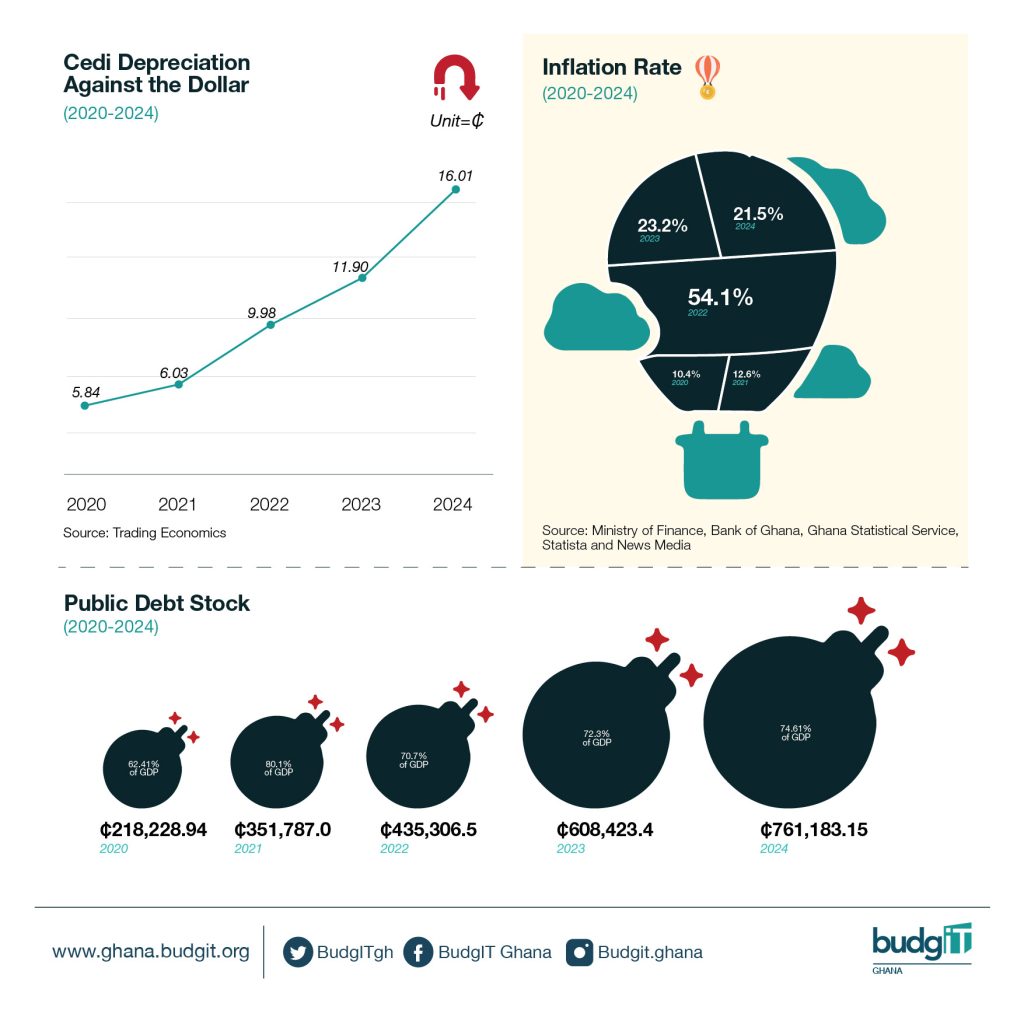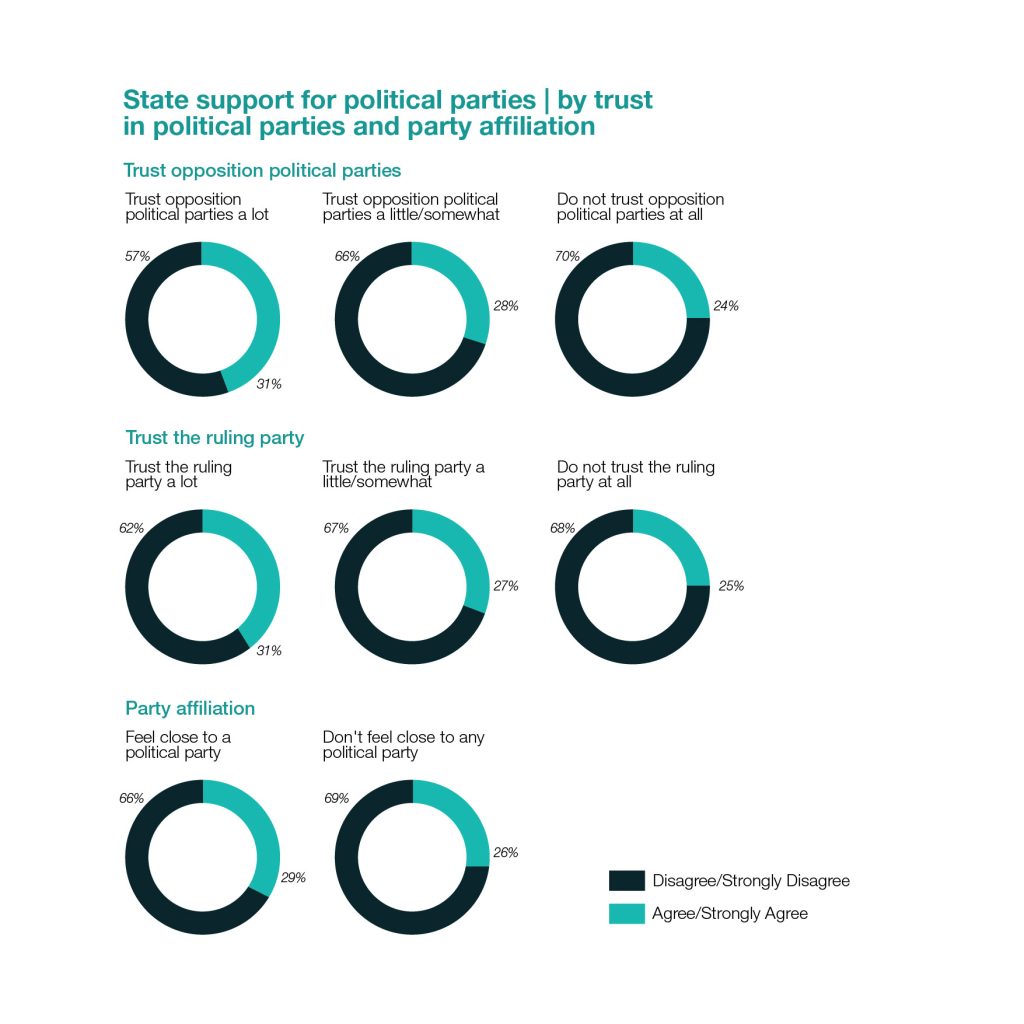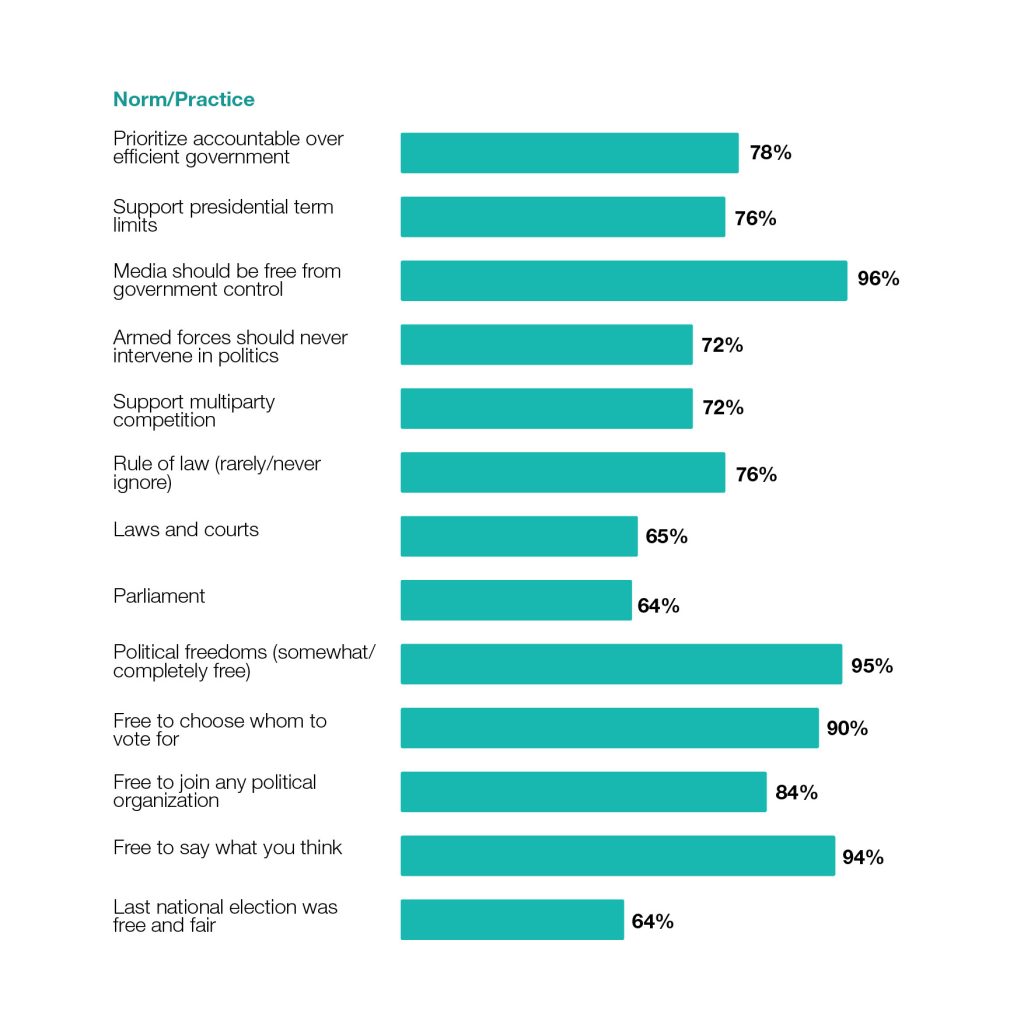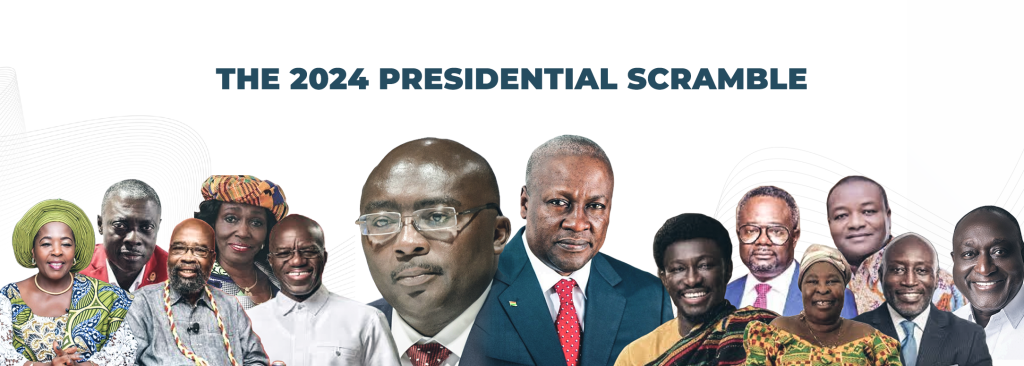The Scramble for Ghana’s Presidency in 2024: What Everyone Needs to Know
As Ghanaians gear up for the presidential elections in December, it is impossible to ignore the surge in the number of candidates aspiring to lead the country in such economic distress. Unlike past elections, which only had 12 candidates in 2020 and 7 in 2016, this year’s presidential ballot features an unprecedented 39 contenders.
What prompted the sudden rise in nominations? Is it a response to economic challenges, or does it indicate a heightened civic and political engagement? Considering Ghana’s socio-political landscape and its influence on the average citizen, it is imperative to examine the factors contributing to this increase.
What Factors Contributed To The Rise Of Presidential Candidates This Year?
- A Damsel in Distress: Are Aspirants Seeking to Be the Change They Desire?
The World Bank outlook predicts that Ghana’s macroeconomic indicators will remain weak over the next few years, with growth likely staying low at 2.8% because of ongoing fiscal consolidation, high inflation rates, high interest rates, and ongoing macroeconomic uncertainties. These factors may slow down private spending and investment, limiting growth in the non-extractive sector.
Ghana continues to face numerous economic challenges, including a high inflation rate of 20.4%, a debt burden of GH₵742.0 billion, currency depreciation and energy shortages, and high electricity tariffs that impede growth and increase business costs.

The country’s economic crisis significantly impacts the current political climate, and many citizens see this as an opportunity to propose alternatives to the ruling government’s policies while capitalizing on people’s dissatisfaction.
The topic of post-pandemic economic recovery was front and center in the 2020 elections, with the current president and the opposing party’s leader presenting competing plans for economic transformation and recovery. Afrobarometer data reveals that people are becoming increasingly mistrustful of their government. They believe it has failed to steer the economy in the right direction and seek better leaders.

- Is Increased Civic Engagement Driving a Rise in Presidential Candidates?
Despite these economic difficulties, Ghana’s growing civic space and strong democratic principles should not be overlooked. Civil groups have played an integral role in strengthening democratic principles in Ghana. Key Organizations like the Center for Democratic Development Ghana (CDD-Ghana), the Ghana Integrity Initiative, Oxfam in Ghana, and the Parliamentary Network Africa.
Over the past three years, BudgIT Ghana has been instrumental in expanding civic awareness, driving civic education, and engaging the public in the annual national budget process. We have established four youth clubs in national colleges and universities, attracting over 2,000 members, engaging in over 30 community activities, and reaching out to 100,000 citizens through traditional and social media.
We also launched our revolutionary project tracking tool, Tracka, to empower citizens to monitor and provide updates on public projects in their communities. We are making active citizenship cool again, and we have observed a substantial increase in Ghanaians’ engagement in political discourse and discussions through various channels, including X Spaces, online town hall meetings, and surveys. These interventions allow citizens to hold politicians accountable and demand good governance.
Ghana has gradually become one of the most stable and robust democracies in Africa since the country’s return to multiparty democracy in 1992. The Freedom House Report characterizes Ghana as a “free country.” It consistently ranks high in continental and international indices that evaluate political freedoms and civil liberties. Could increased civic engagement explain the rise in presidential candidates? Could it be a result of the Ghanaian electorate’s adoption of technology, which increases access to participatory democracy and makes it more inclusive for less popular aspirants to run without reliance on major party support?

- An Increasing Public Mistrust in the Government?
There is increasing dissatisfaction with the two primary political parties, the National Democratic Congress (NDC) and the New Patriotic Party (NPP). Despite their long-standing dominance, there is a perception that these parties have not effectively addressed the country’s most pressing issues. Therefore, the 2024 elections allow less popular party candidates to challenge the status quo and provide fresh perspectives to address Ghana’s changing needs. While there is noticeable political party fragmentation, as evidenced by the increased number of registered political parties and an opportunity to explore unique political perspectives and agendas, we must also be wary of independent candidates running for prestige and fame associated with the president’s office or other political appointments.
The proliferation of candidates may be attributed to the convenience of establishing political parties and the subsequent political fragmentation. As a result of the increased number of registered political parties, each representing a unique set of political perspectives and agendas, a greater number of candidates are emerging, each asserting they have innovative solutions to the nation’s problems.
- The Question Is: How Will This Affect Ghanaians?
On a positive note, diverse candidates can enrich the democratic process by offering voters a broad spectrum of ideas and perspectives. This vibrant competition may lead to fresh policy initiatives as candidates strive to win over voters with comprehensive and practical proposals. However, given the sheer number of candidates, there are valid concerns about potential voter fatigue and uncertainty, which could lead to fragmented election results and necessitate a runoff, causing instability.
Ultimately, Ghanaians are looking for politicians who can address the country’s infrastructure, health, education, and economic problems with real and workable solutions. Voter turnout in this election indicates the increasing civic engagement and democratic culture in Ghana.
As Ghanaians navigate this pivotal electoral season, they must carefully evaluate the plethora of candidates to determine who is best positioned to lead the country forward.
Written by: Nancy Adzo Akpene Avevor and Abiola Afolabi
